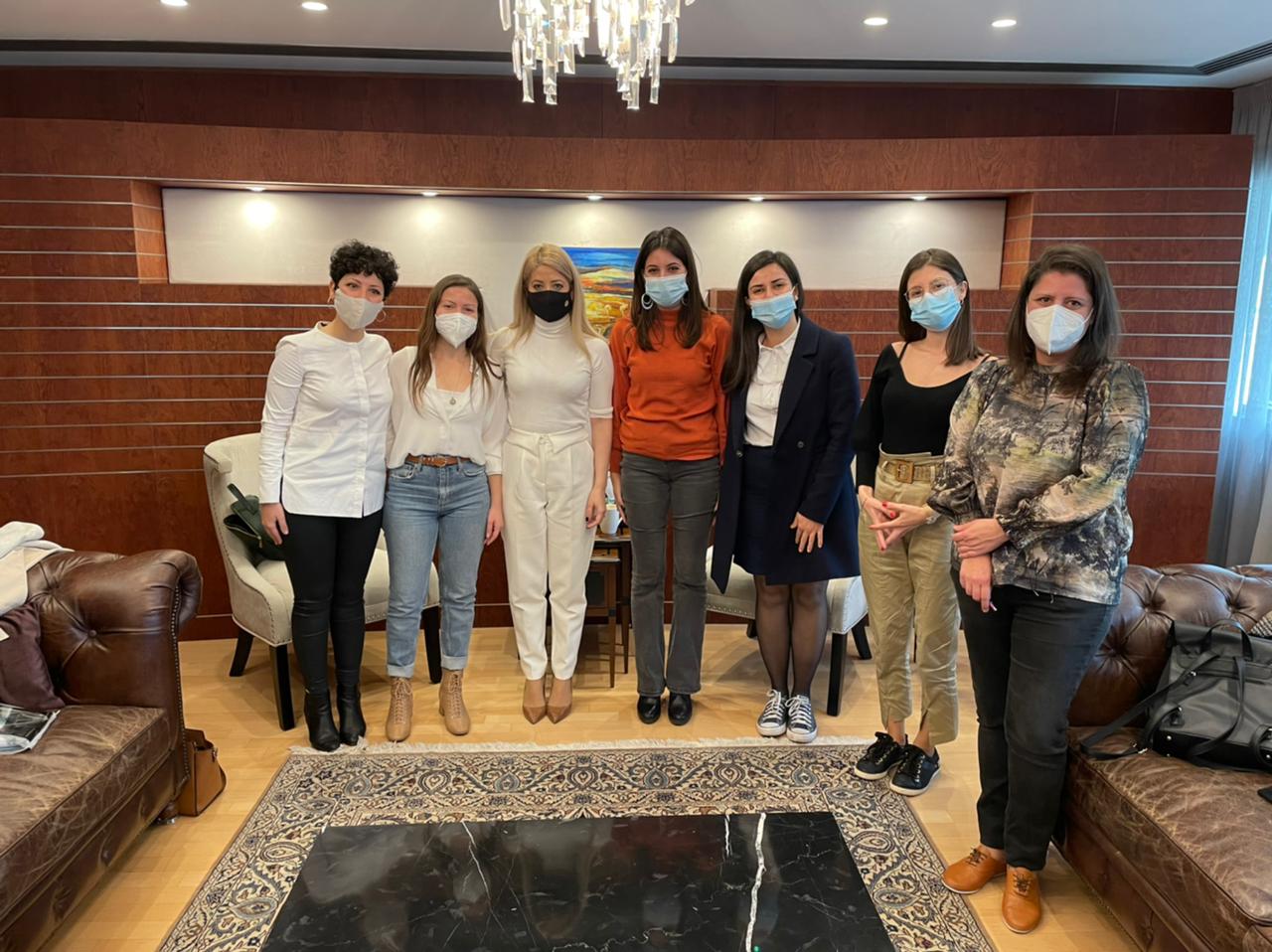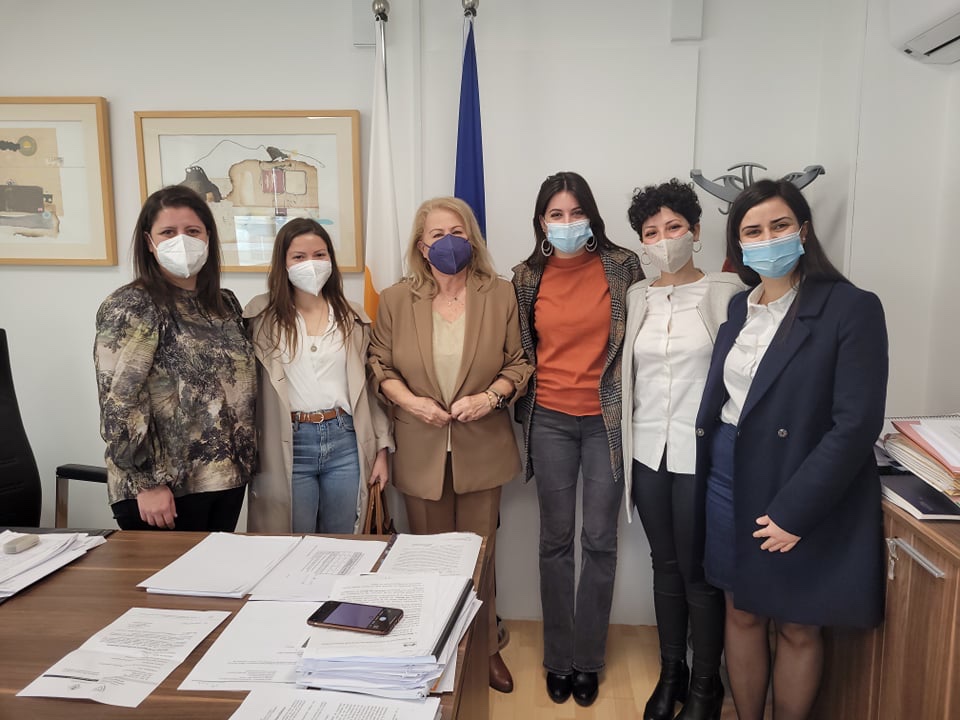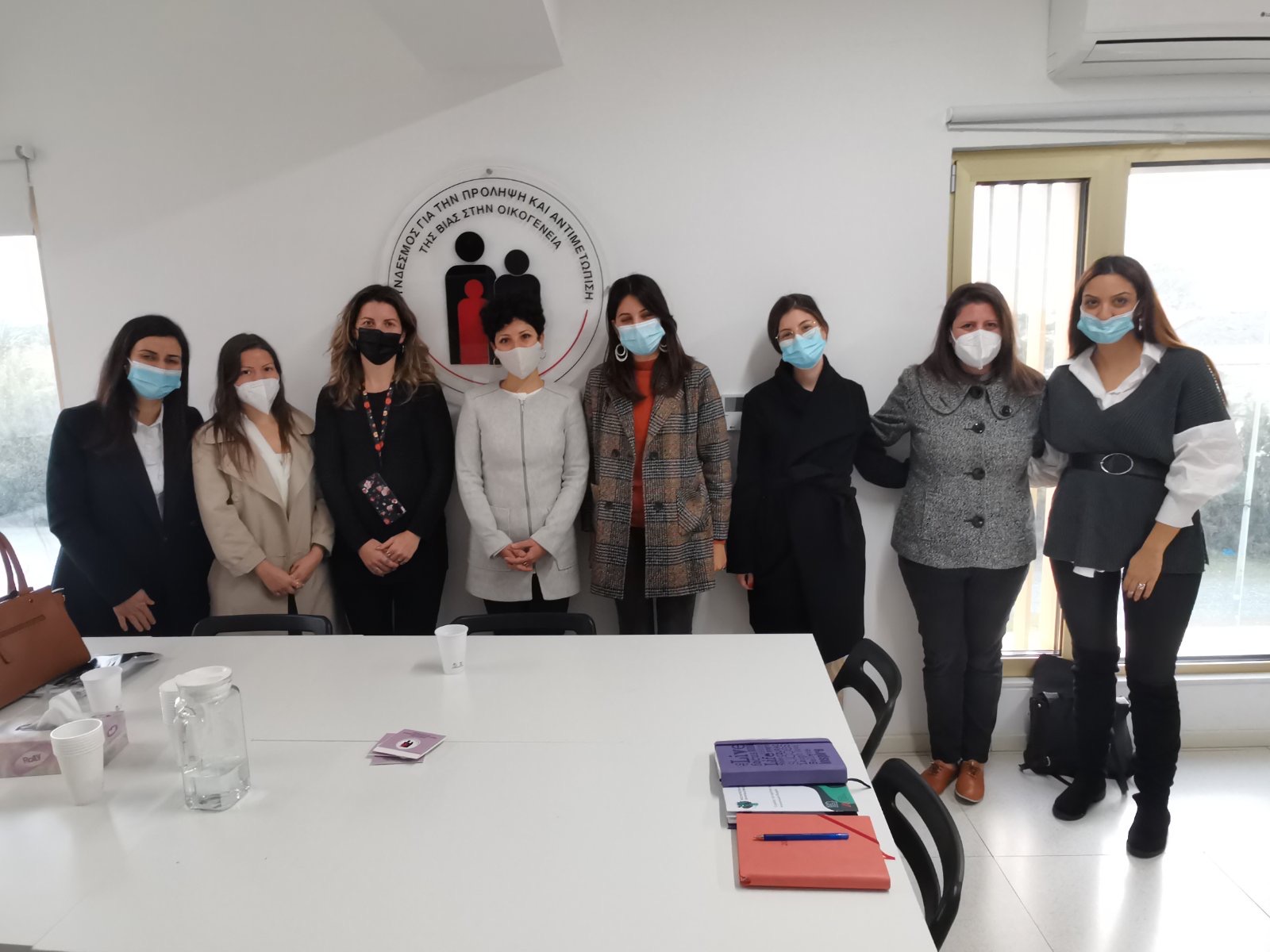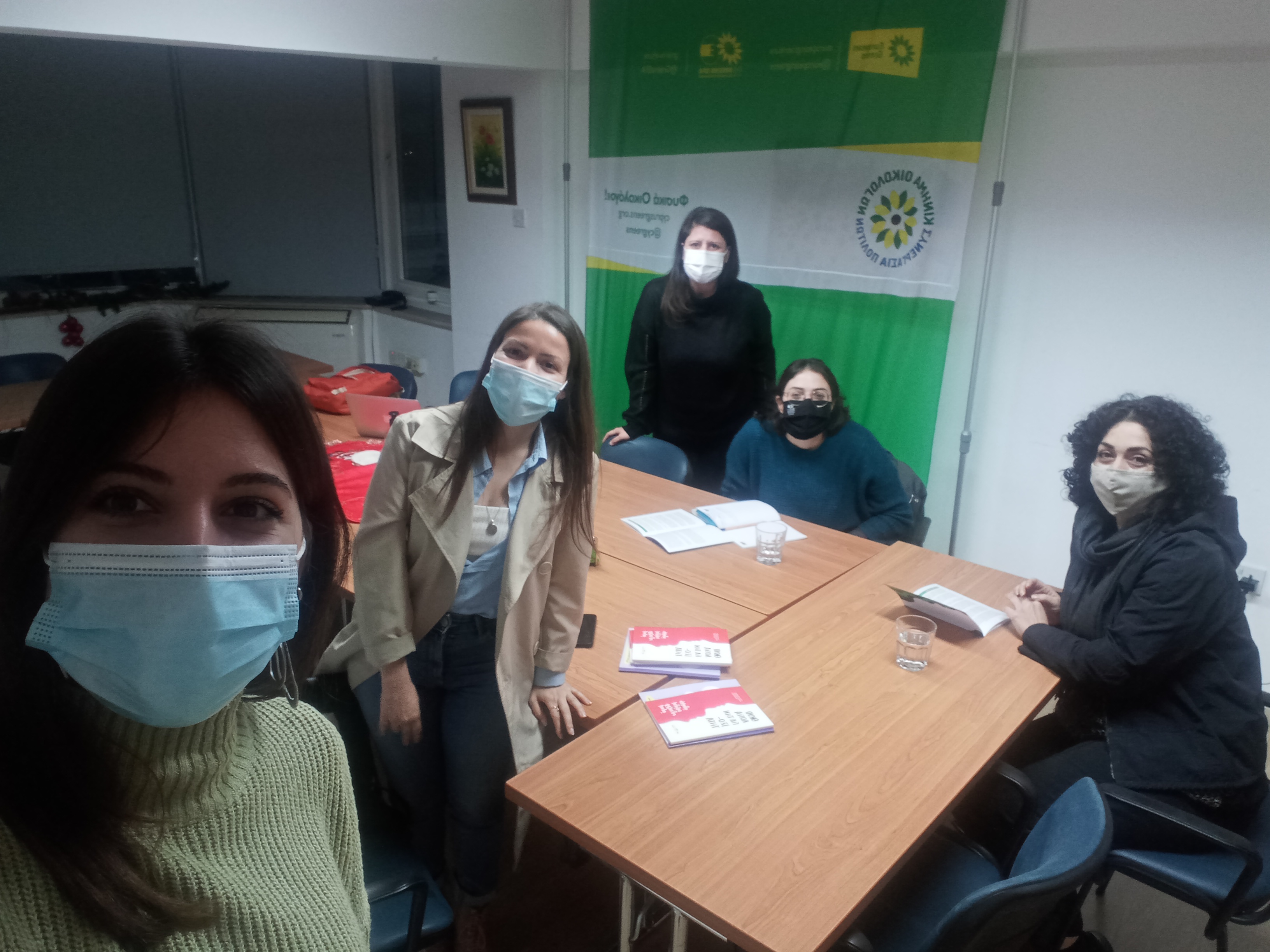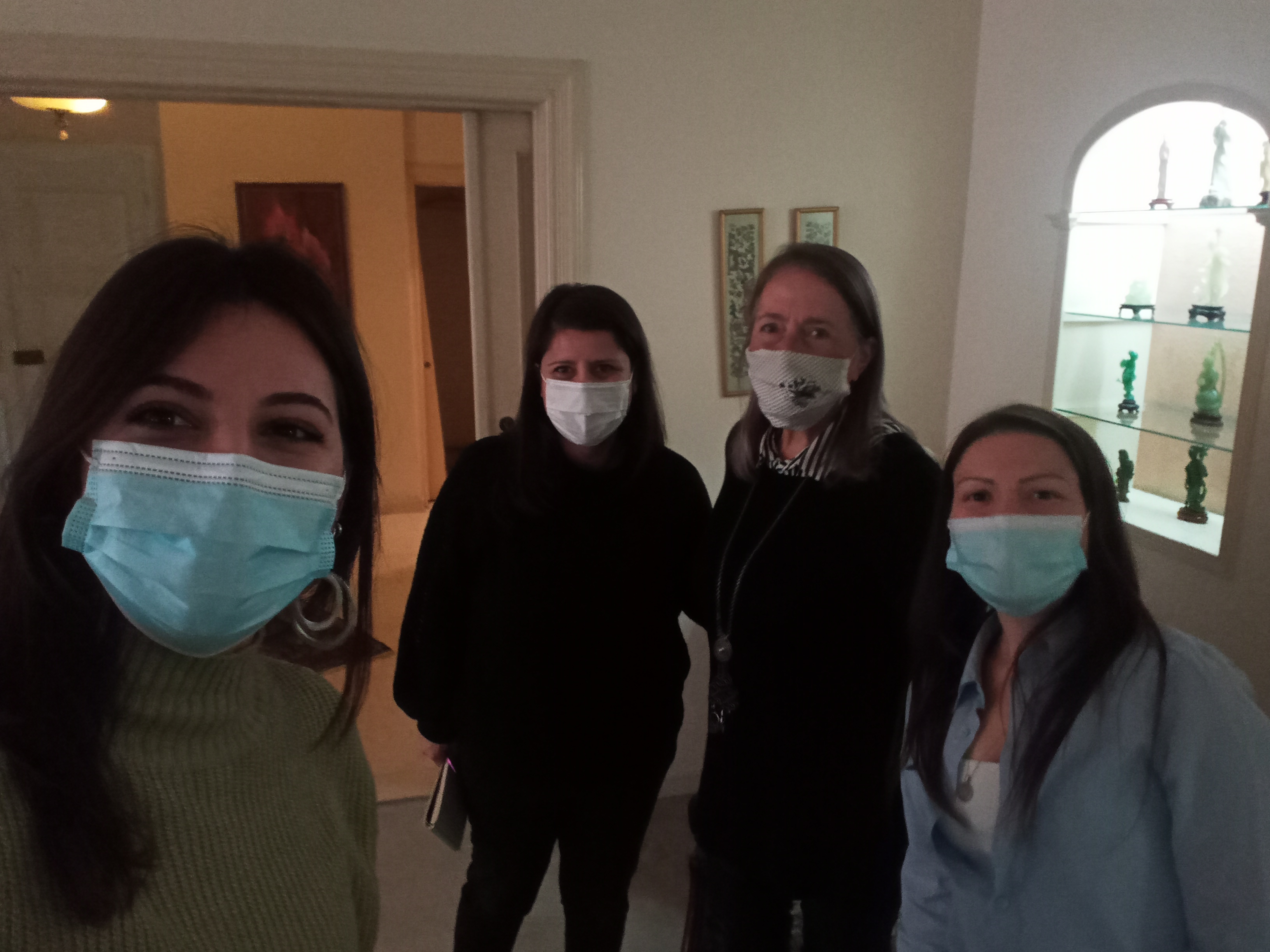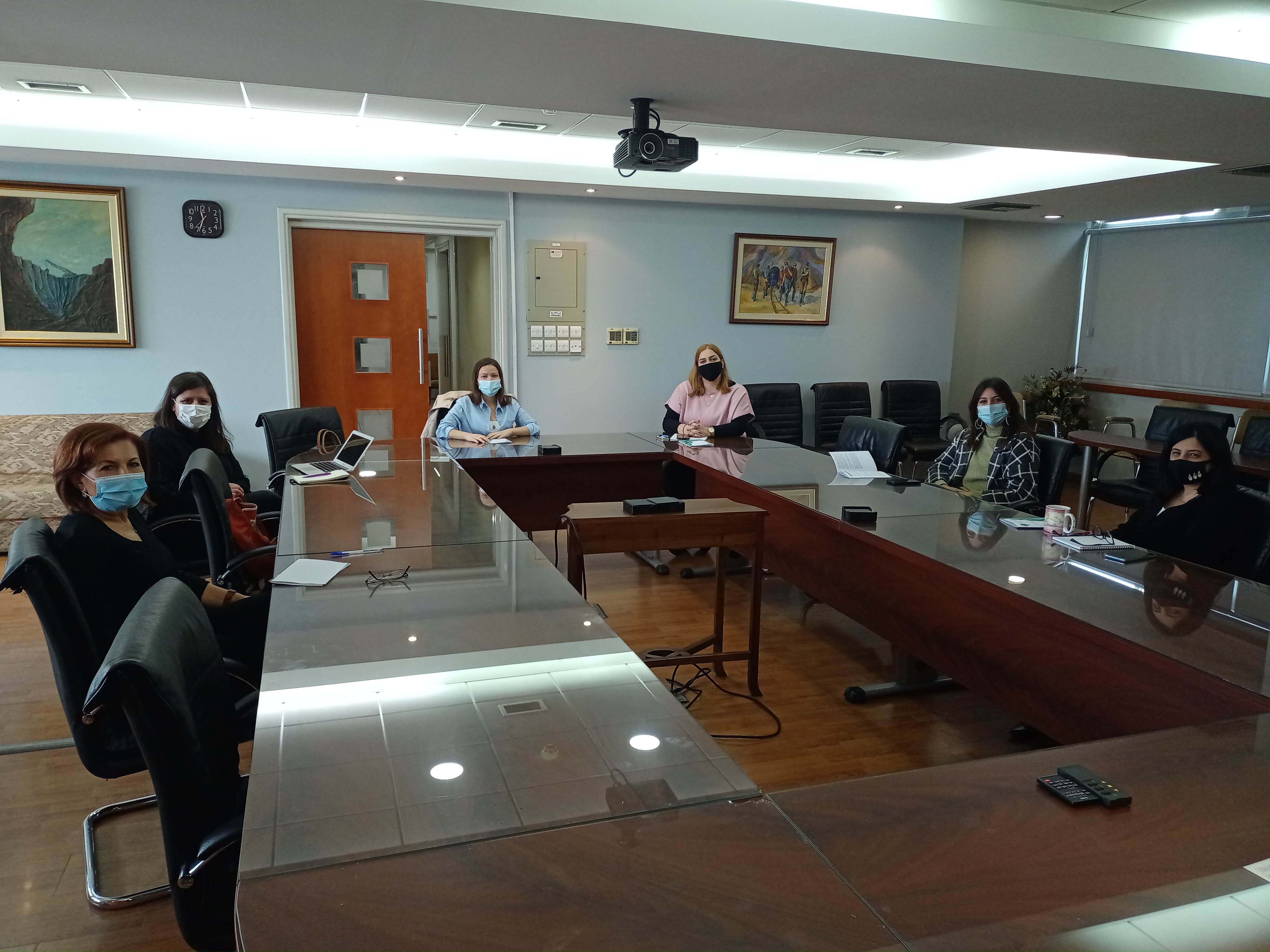
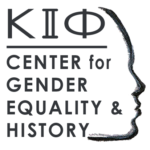


The project The Youth for Gender Equality in the Family: The Importance of the State and the Social Institutions began in January 2019 and was completed in February 2022. It was implemented by the Center for Gender Equality and History (KIIF) in cooperation with the Cyprus Family Planning Association (KSOP) and was funded by the European Program ERASMUS+. The project was conducted in Cyprus and its working language was Greek.
The need for the implementation of this project came from the recognition that gender equality in the family has not yet been achieved despite the progress that has been accomplished during the last decades. Gender stereotypes continue to define the distribution of family roles and tasks while gender prejudices dominating the wider social environment—along with the lack of a functional welfare state and social policies which would protect and support parenting—lead to inequalities in and out of the family, and maintain conditions of oppression for both women and men.
Therefore, the aim of the project was to offer space to young women and men, through the methodology of structured dialogue, to gain new knowledge, exchange ideas, construct their opinions, and express them to stakeholders, urging the latter to apply good policies for gender equality in the family.
In other words, the organizers aspired to contribute to the empowerment of the Cypriot youth on issues of gender equality within the family. To achieve this, the project consisted of three parts:
(A) SURVEY
A quantitative and qualitative research which was undertaken by “Hypatia” Foundation Promoting Equality aiming to capture the views of the Cypriot youth on gender equality in the family and the role of the state and social institutions in supporting and promoting it. Initially, a quantitative survey was conducted, between 6 June 2019 and 17 July 2019, via the distribution of questionnaires to 200 men and women . The participants in the study came from different age groups (within the age category of 18 to 35 years old) and different family and socioeconomic profiles, including people with disabilities and immigrant background. Following this, qualitative research was conducted via four focus group discussions with sixteen participants between 12 and 17 July 2019. Among the focus groups, one consisted of hearing-impaired people and one of young immigrants and refugees from non-EU countries. The results showed that to promote gender equality in the family it is necessary to a) provide paid leave for parents/guardians; b) offer access for all children to high quality, age-appropriate, financially and geographically affordable and accessible childcare centers, regardless of the family circumstances; c) collect more and better data on all aspects of family-friendly policies, so that programs and policies can be monitored and results compared; d) redefine the role of the father in changing the existing mentality, and e) implement policies and practices that allow the combination of work and family life. To read the research report (available only in Greek) press here.
(B) YOUTH MEETINGS
Five one-day youth meetings were conducted under this project. The meetings adopted methodologies of experiential, interactive, and participatory learning, including group studies, experiential activities facilitated by the organisers, cycles of discussion and reflection etc. Through these, the group of the young participants reached to common understandings on problems and solutions. This resulted in the construction of a series of policy recommendations by the young participants which were published in the project’s booklet (available only in Greek). Moreover, the meetings resulted in the construction of the project’s logo and slogan, as well as a short video against gender stereotypes.
The first meeting aimed to map the situation and the problems in regard to the institutional framework in terms of gender equality in Cyprus. Therefore, a number of stakeholders’ representatives were invited to give relevant presentations to the youth (including Members of the Cypriot Parliament, representatives of local municipal authorities, representative of governmental departments etc.). The meeting concluded with a short workshop where the young participants discussed and reflected on what they had learned, while they also enlisted what they considered as roots of gender inequalities and the role of different institutions within this regard. For more information, see the schedule and the relevant post. The rest four meetings explored gender stereotypes, the roots of gender inequalities and the role of institutions. The meetings included the study of the survey which was conducted at the first stage of the project as well as presentations by NGOs and experiential activities prepared by the organisers.
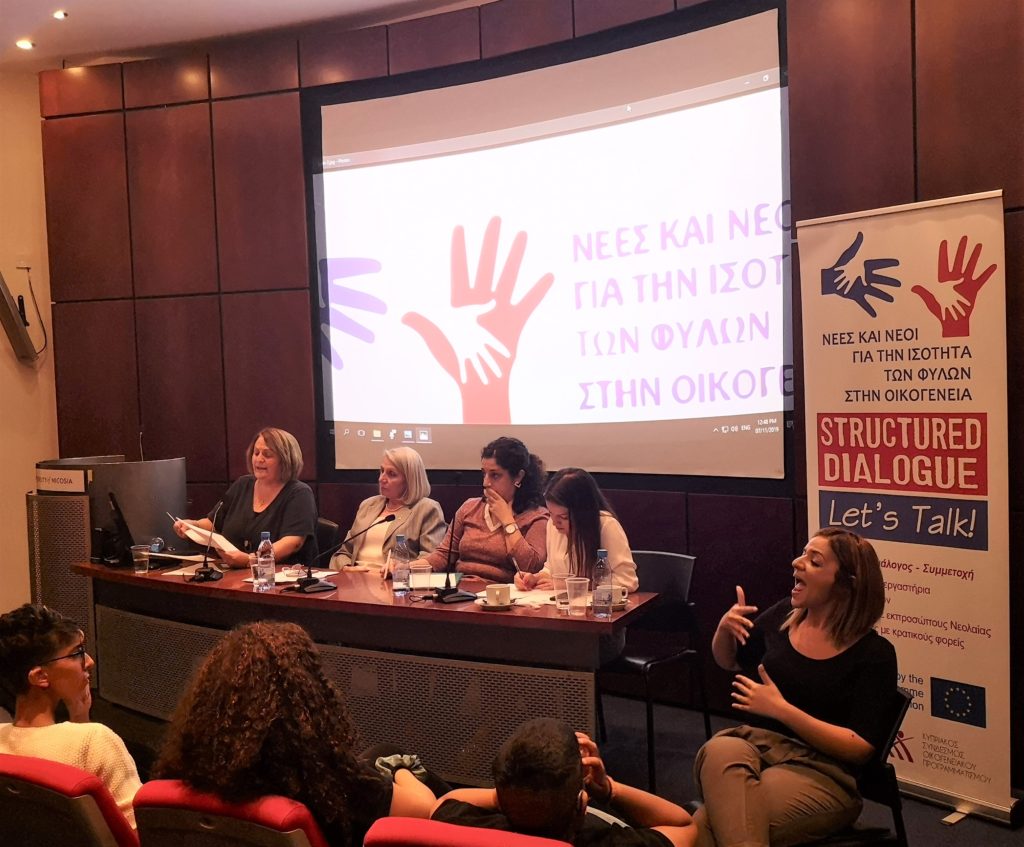
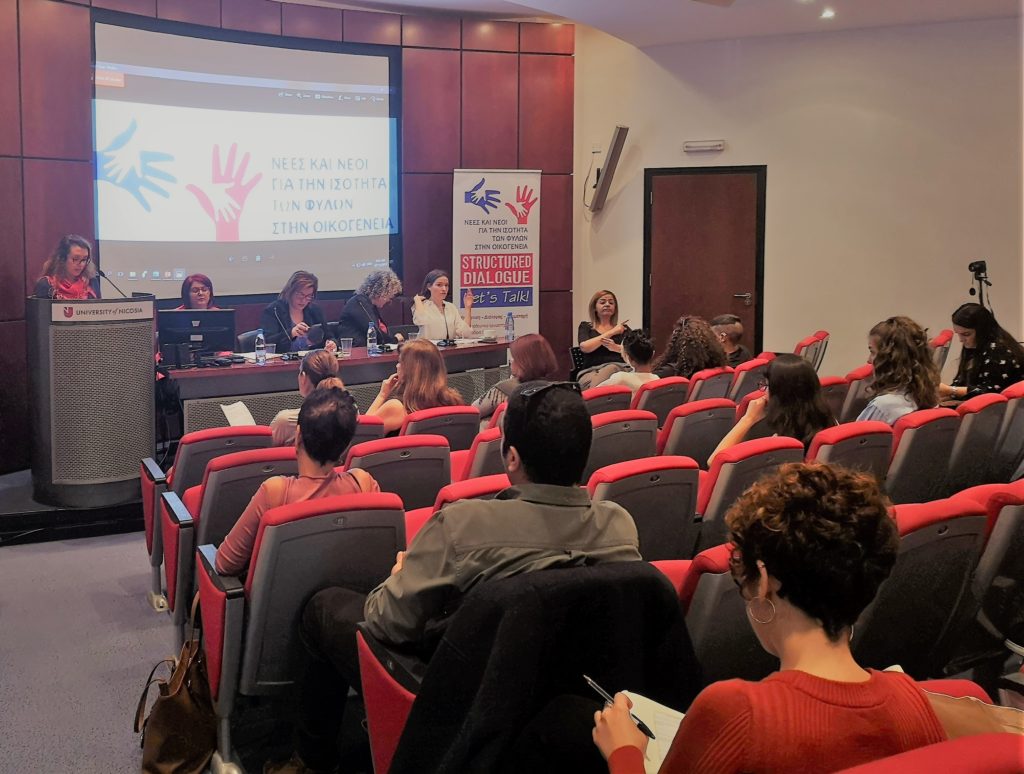

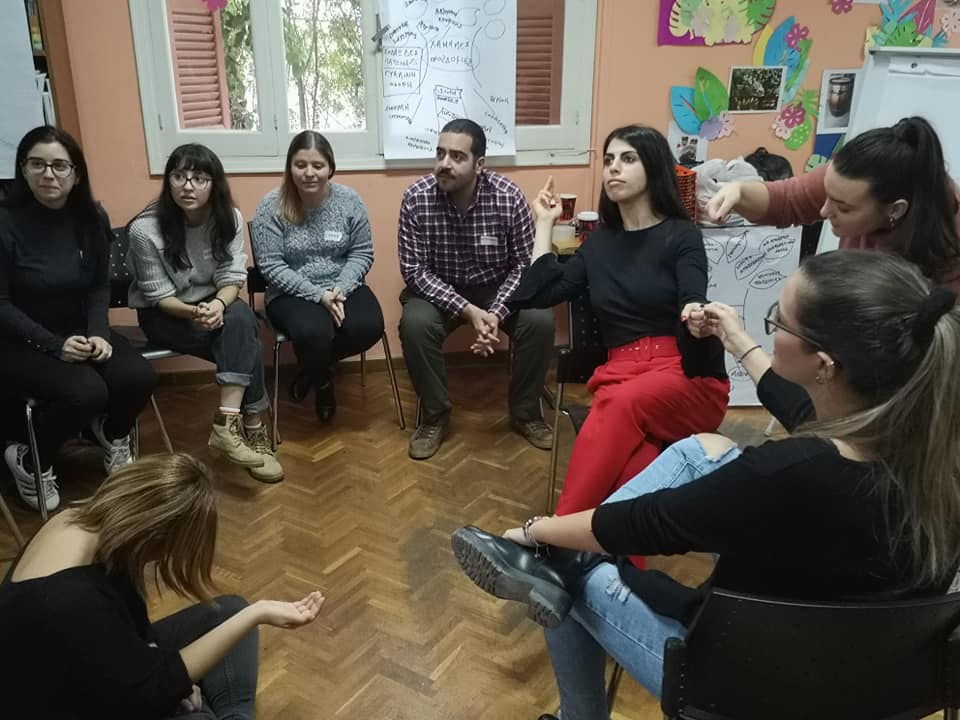



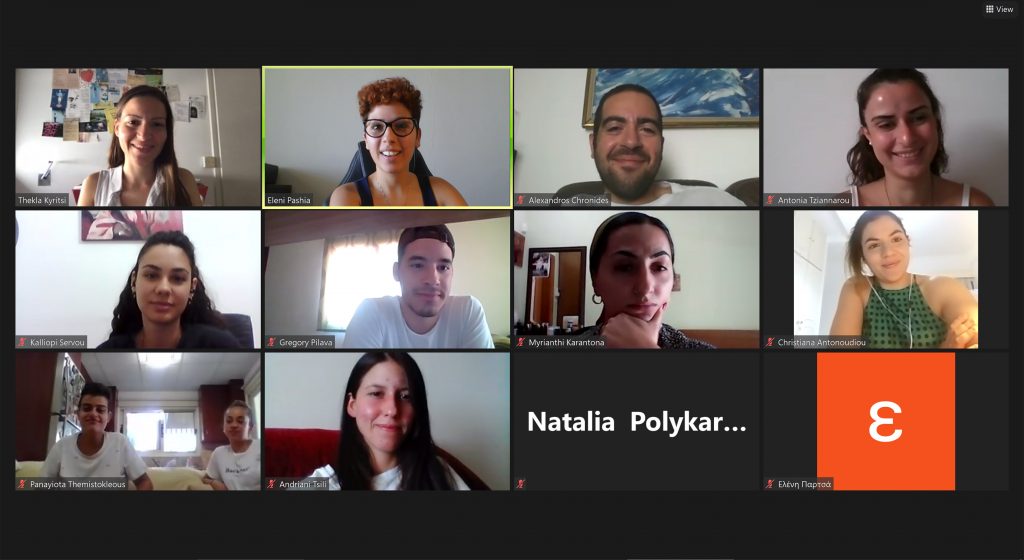
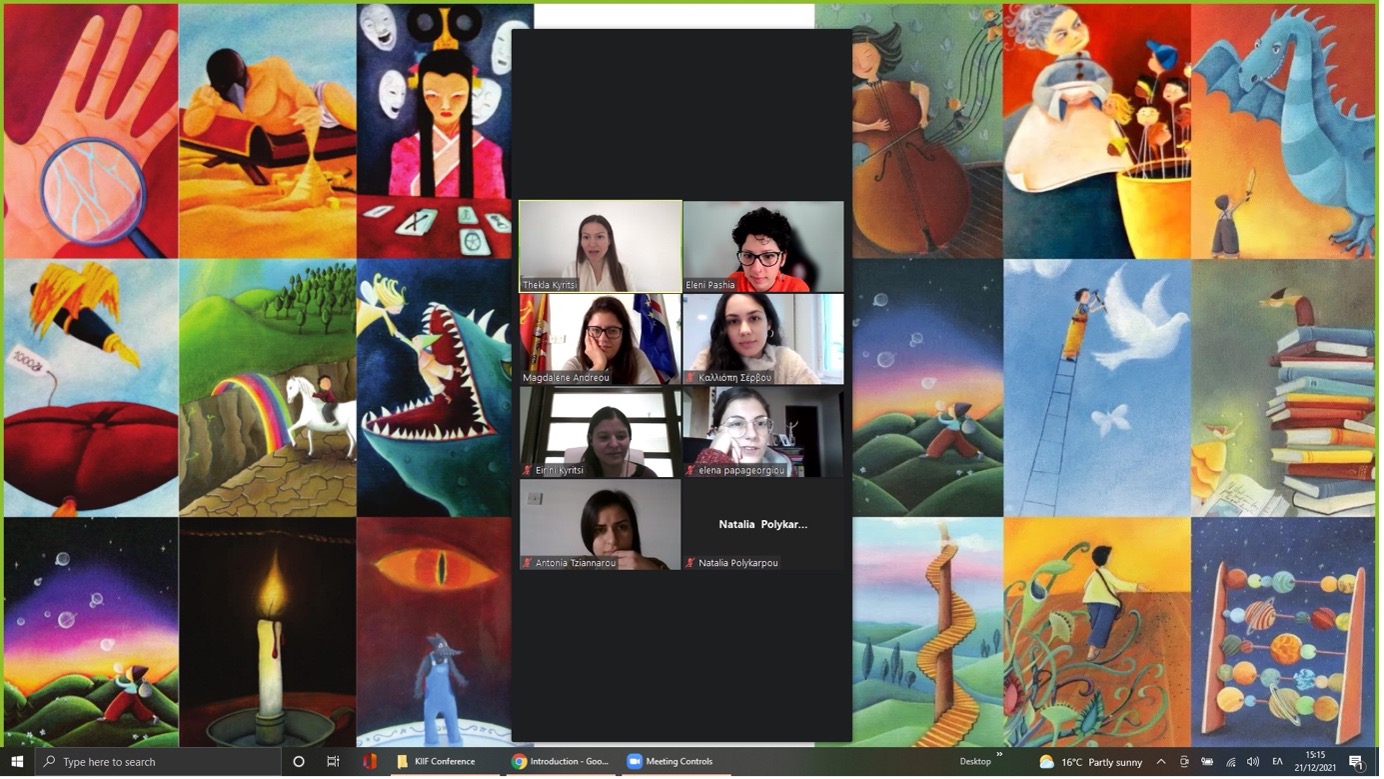
(C) MEETINGS WITH STAKEHOLDERS
After the completion of the youth meetings, which resulted in the construction of a series of policy recommendations by the young participants aiming to support gender equality in the family, a representative committee had a number of meetings with stakeholders. The aim of the meetings was to present the results of the project, distribute the project’s booklet, and discuss possible measures and good practices which could be adopted to support gender equality in the Cypriot family. Among the stakeholders who met with the committee were the President of the Cyprus Parliament, the Commissioner of Gender Equality and a number of women’s organisations and NGO representatives.
